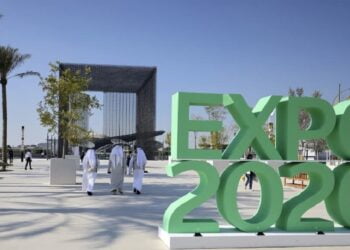The nationwide walkout is in retaliation for Israeli soldiers murdering Palestinian Mohammed al-Osaibi on Friday at the Al-Aqsa Mosque complex’s entrances.
Following a request from the High Follow-Up Committee for Arab Residents of Israel, Palestinian cities and towns around Israel held a one-day strike on Sunday in protest of the shooting death of Palestinian doctor Mohammed al-Osaibi by Israeli troops.
According to eyewitnesses, Osaibi was shot ten times by police on Friday night at the Chain Gate (Bab al-Silsela), one of the entrances to the Al-Aqsa Mosque compound in the Old City of Jerusalem, when he attempted to stop them from intimidating a woman attempting to reenter the mosque.
The Israeli police, on the other hand, stood by their initial account of what happened and issued a second statement on Saturday afternoon claiming that the attack site was not covered by security cameras.
The High Follow-Up Committee for Arab Citizens of Israel issued a call for a strike that affects all municipalities, public educational institutions, and retail establishments in Palestinian cities and towns in Israel following an emergency meeting on Saturday in Hura.
The heads of private local authorities in southern Israel, as well as representatives from the Committee of Heads of Arab Local Authorities in Israel and the Higher Steering Committee for the Arabs of the Negev, attended the emergency meeting, which was called by the two organizations.
The board, an umbrella association addressing Israel’s Palestinian residents, required an extraordinary examination council to investigate Osaibi’s killing. In addition, it encouraged a large attendance at his funeral on Sunday in opposition to “occupation policies, oppression, and racial discrimination” in general.
According to the Palestinian health ministry, Israeli forces have killed at least 87 Palestinians, including fighters and civilians, since the beginning of the year. This is the deadliest start to a year since 2000. Mohammed Baradyah, a 23-year-old Palestinian, was killed by Israeli forces on Saturday after he allegedly ran over three Israelis in a car near the town of Beit Ummar, north of Hebron.
The weekend’s heightening takes steps to end a relative break during the Muslim sacred month of Ramadan up to this point, a period that normally witnesses an expansion in conflicts between Israeli powers and Palestinians, particularly in East Jerusalem as Israel fixes limitations against Palestinians nearby.
More Violence
An Arab-Israeli allegedly snatched a gun from a police officer at Jerusalem’s Al-Aqsa Mosque compound and fired it before being shot to death less than 24 hours prior to the Palestinian’s death.
Before being neutralized, the army claimed that a “terrorist” had carried out a “ramming attack adjacent to the town of Beit Ummar,” and an army spokesperson confirmed to AFP that the presumed assailant had died. According to the medical staff at Magen David Adom, three men with moderate, moderate, and severe wounds had been transported to Jerusalem hospitals.
According to Israeli police, more than 100,000 Muslims had gathered to pray at Islam’s third holiest site, which is built on the Temple Mount, which Jews consider to be Judaism’s holiest site. In the city, more than 2,000 police officers were stationed.
The Jordanian body which controls the mosque compound put the quantity of admirers at 250,000. Since the beginning of the year, there has been a rise in violence in the Israeli-Palestinian conflict, which has raised fears of a bloodbath during Ramadan.








